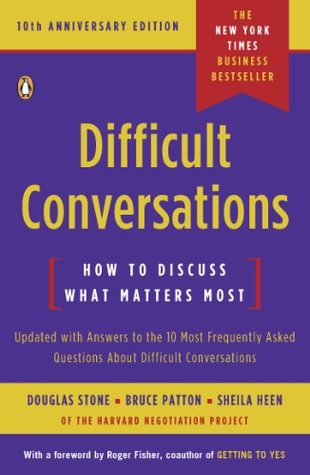More on this book
Community
Kindle Notes & Highlights
The point is this: difficult conversations are almost never about getting the facts right. They are about conflicting perceptions, interpretations, and values.
When competent, sensible people do something stupid, the smartest move is to try to figure out, first, what kept them from seeing it coming and, second, how to prevent the problem from happening again. Talking about blame distracts us from exploring why things went wrong and how we might correct them going forward. Focusing instead on understanding the contribution system allows us to learn about the real causes of the problem, and to work on correcting them.
Arguing inhibits our ability to learn how the other person sees the world. When we argue, we tend to trade conclusions – the “bottom line” of what we think: “Get a new mattress” versus “Stop trying to control me.” “I’m going to New York to make it big” versus “You’re naive.”
Arguing creates another problem in difficult conversations: it inhibits change. Telling someone to change makes it less rather than more likely that they will.


